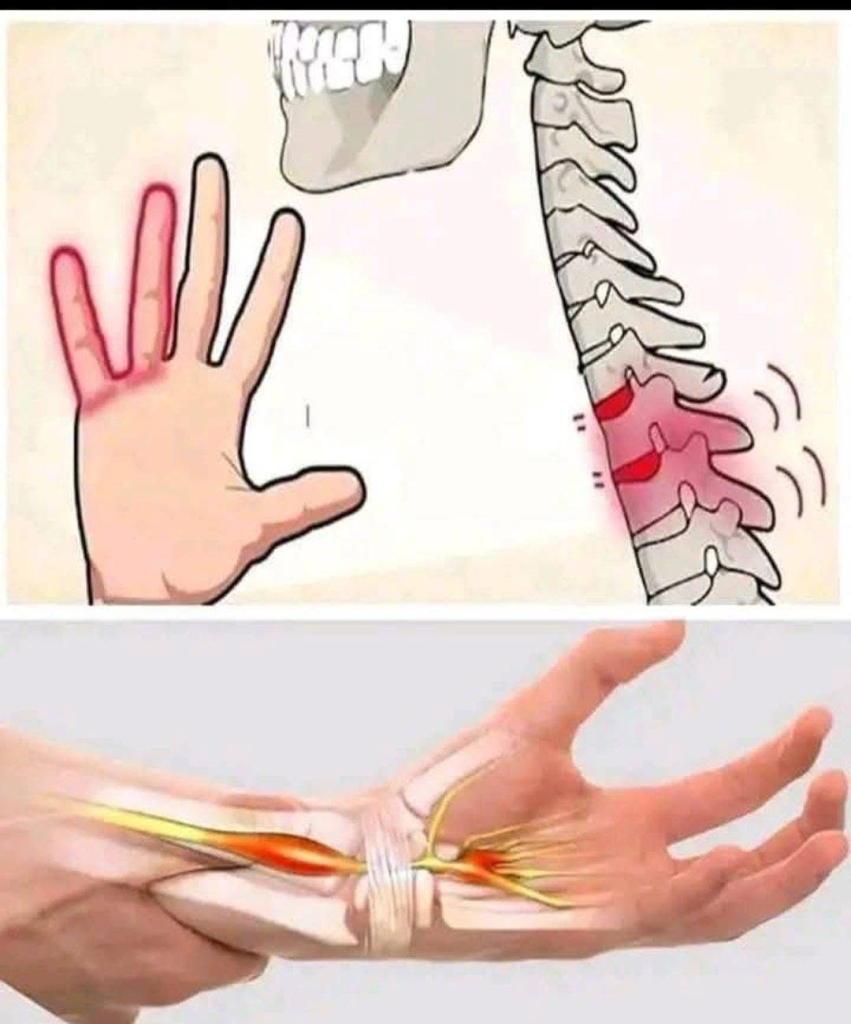Ever wake up with your hands feeling like pins and needles? Or maybe you’re working at your computer when suddenly your fingers go numb? That strange tingling sensation isn’t just annoying—it might be your body’s way of trying to tell you something important.
Numbness or tingling in the hands can come and go, or it can stick around and signal a deeper issue. While sometimes it’s as harmless as how you slept, other times it’s tied to serious health conditions. Let’s break down the most common reasons behind it and help you understand when it’s time to worry—and when it’s not.

Sleeping in Awkward Positions Can Cut Off Circulation
One of the most common and least serious reasons for hand numbness is simply how you sleep. If you’ve ever woken up and your hand feels like it doesn’t belong to your body, chances are you were lying on it awkwardly.
When you compress nerves or blood vessels for too long, the result is temporary numbness or tingling. It usually goes away within minutes of stretching or shaking your hand. No big deal—but if it’s happening regularly, it might be time to adjust your sleeping position or mattress.
Video: Arm and Hand Numbness and Tingling Explained
Repetitive Hand Movements and Carpal Tunnel Syndrome
Now, let’s talk about your daily habits. If you type for hours, use tools for work, or even scroll on your phone non-stop, you could be overworking your wrists.
This kind of repetitive motion can lead to carpal tunnel syndrome, where the median nerve in your wrist gets compressed. That’s when the tingling starts—especially in the thumb, index, and middle fingers. You might also notice your grip feels weaker, or that you drop things more often.
The good news? With rest, wrist braces, and ergonomic changes to your workspace, you can often manage the symptoms. In more severe cases, surgery may be recommended.
Vitamin B12 Deficiency Can Affect Nerve Health

You might not think of vitamins when your fingers feel weird, but vitamin B12 plays a big role in keeping your nerves healthy. A lack of it can lead to numbness, tingling, fatigue, and even memory problems.
Vegetarians, vegans, and people with digestive disorders (like Crohn’s or celiac disease) are more likely to be low on B12. Luckily, a simple blood test can reveal a deficiency—and supplements or dietary changes can fix the problem quickly.
Electrolyte Imbalances Might Be the Culprit
Ever felt shaky or tingly after sweating a lot or being dehydrated? That could be an electrolyte imbalance. Your body needs the right balance of sodium, potassium, calcium, and magnesium to keep your nerves firing properly.
If any of these levels get too low, your muscles might cramp and your hands could start tingling. It can happen from illness, medications, dehydration, or even over-exercising without replenishing fluids.
Rehydrating and eating nutrient-rich foods (or taking an electrolyte supplement) can usually bring your body back into balance.
Diabetes and Nerve Damage: A Silent Cause

If you have diabetes, or even prediabetes, numbness and tingling in your hands or feet could be an early sign of diabetic neuropathy—nerve damage caused by high blood sugar levels over time.
This condition can start slowly, often going unnoticed until it becomes more constant. About half of people with diabetes eventually develop some form of nerve damage. Managing blood sugar levels, staying active, and taking prescribed medications can slow its progression.
Issues in the Neck or Spine Can Radiate to the Hands
If the tingling starts in your neck or travels down your arm, the root of the problem might be in your spine. Conditions like herniated discs, spinal stenosis, or cervical spondylosis can pinch nerves in your neck, causing sensations to shoot down into your shoulders, arms, and hands.
This can feel like burning, numbness, or even sharp electric shocks. If you’ve also got neck pain or stiffness, it’s a strong indicator that your spine may be involved.
Physical therapy, stretching, and anti-inflammatory medications can help in mild cases. Severe cases may require imaging tests or surgery.
Autoimmune Disorders That Affect the Nerves
Video: Mayo Clinic Minute: What may be causing your hands and feet to tingle
Some autoimmune diseases, like rheumatoid arthritis, lupus, or Guillain-Barré syndrome, can attack your nervous system. When that happens, you might feel tingling or numbness in your hands and feet—often paired with joint pain, fatigue, or muscle weakness.
Autoimmune conditions are complex and often need lifelong management. Early diagnosis and treatment can prevent further damage and improve your quality of life.
Poor Circulation and Cold Sensitivity
If your hands go numb in the cold or change color (turning white or blue), it could be Raynaud’s phenomenon. This condition causes blood vessels in your fingers to spasm, cutting off circulation temporarily.
Other circulation issues, like peripheral artery disease or cholesterol buildup, can also reduce blood flow to the hands, causing numbness or tingling—especially when you’re at rest.
Wearing gloves in cold weather, quitting smoking, and managing blood pressure can help reduce symptoms.
Tumors, Cysts, or Infections Compressing Nerves

Sometimes, less common causes like ganglion cysts (small, non-cancerous lumps near joints) or even tumors can press on nerves, creating tingling sensations. Some infections—like Lyme disease, HIV, or shingles—can also impact nerve function.
These conditions are more serious, but treatable when diagnosed early. If your symptoms don’t go away or get worse, it’s time to get checked out.
When to Take Tingling Seriously
It’s easy to brush off numbness, especially if it goes away quickly. But certain red flags mean you should see a doctor right away:
- Numbness spreads or worsens
- You lose control over muscles
- You experience slurred speech or confusion
- The sensation is sudden or happens with dizziness
- You notice weakness or coordination problems
These could be signs of a stroke, nerve damage, or another medical emergency.
Conclusion: Listen to What Your Body’s Telling You

That strange tingling in your hands isn’t always a cause for panic—but it shouldn’t be ignored either. Whether it’s from sleeping on your arm, typing too much, or something more serious like diabetes or nerve damage, your body is trying to send you a message.
By paying attention to the patterns, understanding the causes, and seeking medical advice when needed, you can get ahead of problems before they become serious. And hey, next time your fingers feel a little funny—pause and listen. Your nerves might be trying to speak up


